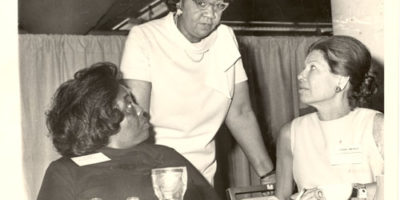Excavating Obscenity
Who would have thought that some American Jews at the dawn of this century supported “smutty” literature as a way of entering exclusive cultural circles, rather than getting thrown out? This is just one of the many surprising, strange and fascinating pieces of literary history to be found in Josh Lambert’s detailed chronicle of Jews and obscenity in America, Unclean Lips: Jews, Obscenity, and American Culture (NYU Press). Lambert explains that there was a “speakers’ benefit” for a number of Jewish critics, lawyers, and publishers like Horace Liveright who pushed for the right of readers to get their hands on works like Ulysses, Lady Chatterley’s Lover or Tropic of Cancer. This despite the fact that early censors, like the notorious Anthony Comstock, pointedly associated “obscenity” with old anti-Semitic stereotypes. By the 1920s, times, they were-a-changin, and free speech pioneers, says Lambert, were able to buy themselves cultural capital.
This early history is just one of many chapters of literary excavation in Unclean Lips. There’s a detailed look at the way the Holocaust’s legacy influenced sexology, of all things: Nazism rose from repression, the naive theory went, ergo if we all just get it on we can end racism.
Most interesting to feminist readers will be the section on heroine Harriet Pilpel (see excerpt on page 48), whose fight to get abortion and birth control legalized pitted her against those censorious Comstock laws. From Pilpel‘s story, it’s clear that crackdowns on free speech are not merely about regulating smut, but about keeping it in the hands of the powerful, and, in particular, preventing women from accessing materials pertaining to sexuality — and controlling their own reproductive destiny.
Lambert also spends some time with Crackpot, a novel by Canadian-Jewish writer Adele Wiseman that revolves around a Jewish prostitute, whose warmth extends to allowing her own son to sleep with her unknowingly. This incestuous act is posited as a gesture of reconciliation, and Lambert classifies it as very much the feminist inversion of a Philip Roth trope.
In our own time, so-called modesty advocates like Wendy Shalit and Shmuley Boteach have sought to impose an Orthodox-Judaism-“lite” version of modesty on the general American public. But, as Lambert points out, even these modern scolds acknowledge that the government can’t force people to cover up. In fact, most literature and culture, Jewish and otherwise, stops short of letting it all hang out. Unclean Lips explores the idea of literary self-regulation, close-reading several works of Yiddish-American literature, which, despite being ignored by official state censors, often referred to sex in a veiled manner that left the explicit moments to the readers’ imagination.
One of the delights of the book is its interest not just in the memorable pinnacles of literary smut by Joyce, Henry Miller, and Roths Philip and Henry, but also lesser-known novels, relegated to their time, such as the 1970s novel about a free-love university, The Harrad Experiment. Why have some envelope-pushing works endured in the cultural memory while others have faded? Some of it is due to literary quality, but some may be because of the same forces — misogyny, prudishness, and cultural chauvinism — that spur official censorship.
Unclean Lips avoids generalizing on a cultural or racial level — but Lambert points out that the avoidance of the pernicious stereotype of the “hypersexual Jew” has led to near-erasure of the intertwined history of American Jews’ cultural contribution and the discourse over obscene speech. Jews arrived on these shores as members of a far-flung diaspora unused to a central authority telling them what to read. Furthermore, they were an insider-outsider group looking for a way further in. Even today, as Lambert writes, foul-mouthed Jews like Larry David and Sarah Silverman push back against a dominant “family values” Christian culture that seeks to sanitize. All of these specific contexts, and more, explain in part why so many Jews in so many distinct eras had a crucial role to play in getting their American brethren to embrace freer speech.
Sarah Seltzer is a journalist, essayist and fiction writer.




